Why teach shapes? Learn why children need to learn shapes and the best activities to help. Plus printables!
Shapes are one of those things we work on with kids from a young age. We teach what a circle is, a triangle, a square. Colors, letters, numbers, shapes.
These are some of the first things we work on with children.
Colors are easy and fun to point out. Numbers and letters are building blocks for their entire future.
But why do we focus on shapes? Are they just easy?
There are actually some very concrete reasons for teaching toddlers and preschoolers shapes.
Here are 5 big reasons to teach preschoolers and toddlers shapes, plus some fun printables to color or use play-doh for sensory shape fun.
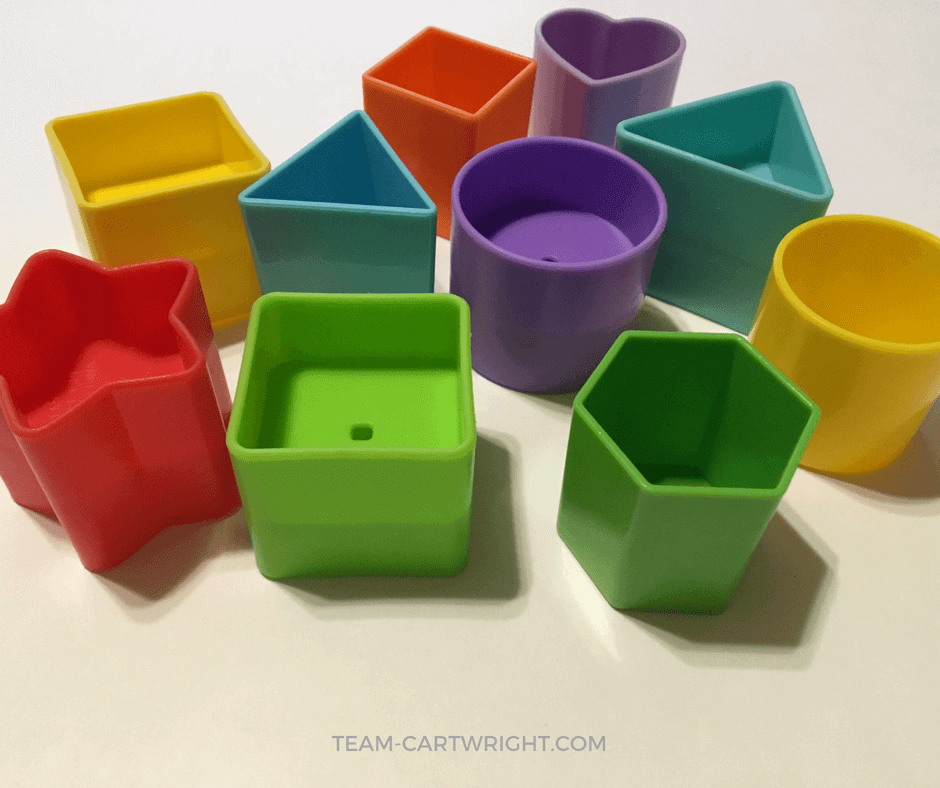
What's In This Post?
Why Teach Shapes?
Why do we teach shapes to our children?
It isn’t just because it is easy. Shapes are building blocks for several bigger concepts that children will use throughout their schooling and lives.
There are big reasons to start shape learning early. Here are some major concepts they work.
Same or Different
Basic shapes like circles, triangles, and squares are distinctly different from each other. This makes them great for practicing same and different.
Same and different is the start of really recognizing distinctive traits objects can have. It is also the first level of categorizing.
Are these two objects the same or different? This is the start of basic observation skills.
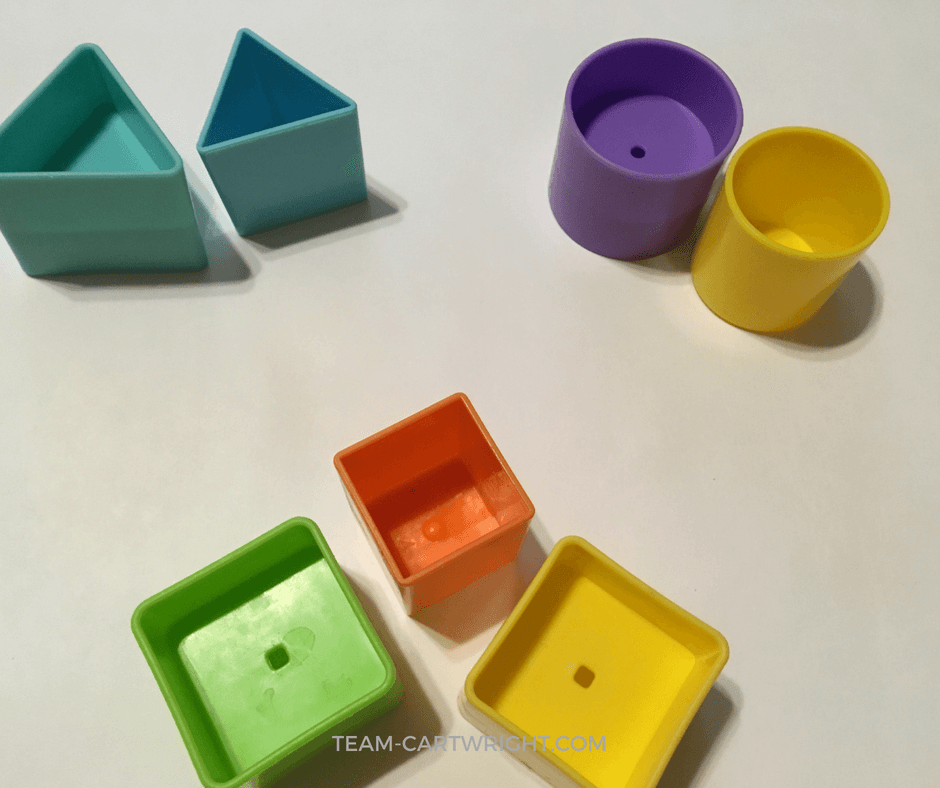
Categorization
Once the basic same or different concept is down, children can move into more complicated categorization.
What makes a circle different from a square? This is detailed recognition of traits objects have.
An important skill is being able to find a common characteristic among different items. A great way to practice this is to send your child on a shape hunt.
How many circle objects can they find? How many squares? This shows them that shape is something that many different things can have in common.
Categorization is an important science skill.
Problem Solving and Spatial Relations
Shapes are a great way to introduce problem-solving skills.
Take a shape sorter. Your child needs to determine which shape goes in which hole, and then they need to actually fit it in.
This works spatial relation skills as well. How do objects fit together? (As your children grow puzzles work the same sort of skill. How do you recognize what piece fits where?)
Anything that works problem-solving is helpful for children, and this sort of trait recognition is key for future science skills.
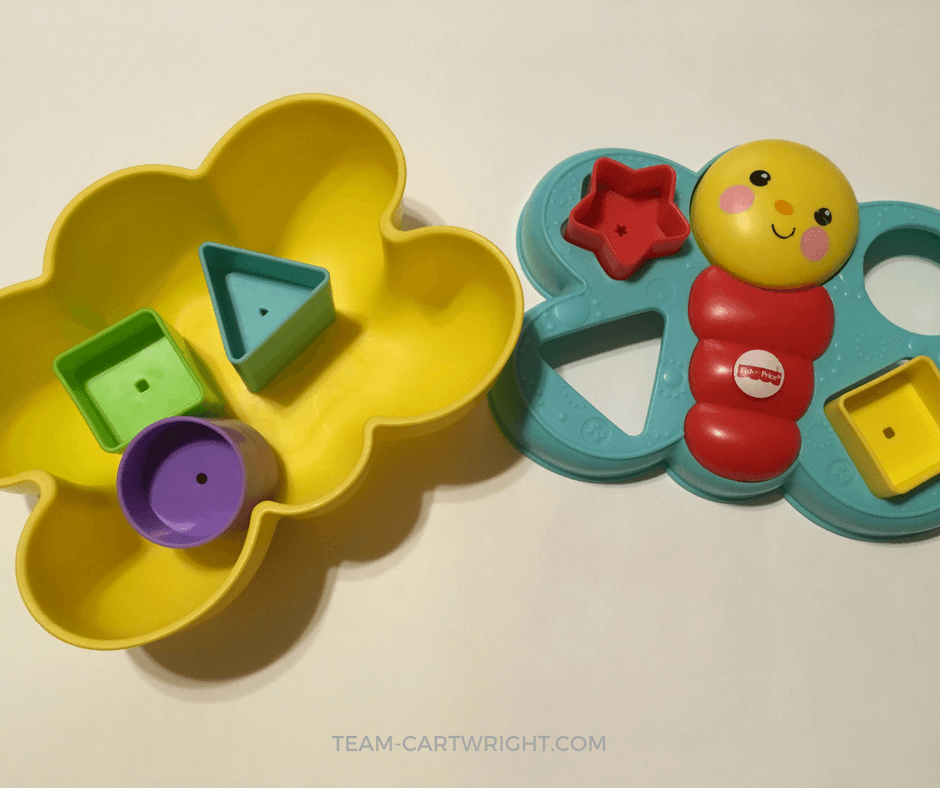
Math Skills
I feel math skills are an obvious area that gets worked when you teach your children shapes.
Geometry is in part the study of shapes. Having a basic understanding of them from a young age will make this math class a lot easier for kids.
Understanding the characteristics of shapes involves a lot of counting. How many sides does a shape have? This easily folds in number practice when you play with your toddlers and preschoolers.
Pattern recognition comes into play as well. Every time you add a side you get a new shape, this is a pattern. Being able to physically see the difference between a shape with three sides and one with five helps with number sense, a key to all math success.
(Learn more about number sense and why it matters here.)
Grab these printables for more shape practice!
Letter Recognition
This is one of the biggest reasons to work on shapes early. Shapes help with letter recognition.
Think about letters, they are very similar to shapes. The letter V is a triangle missing a side, and the letter O is just a circle.
Understanding what shapes are and that they have meaning starts to build literacy. Practicing distinguishing between a square and a triangle help kids recognize between different letters.
The same is true for reading numerals. Having children draw shapes and working on the lines and angles needed to draw a triangle or rectangle helps them later in life when they are learning to write their letters.
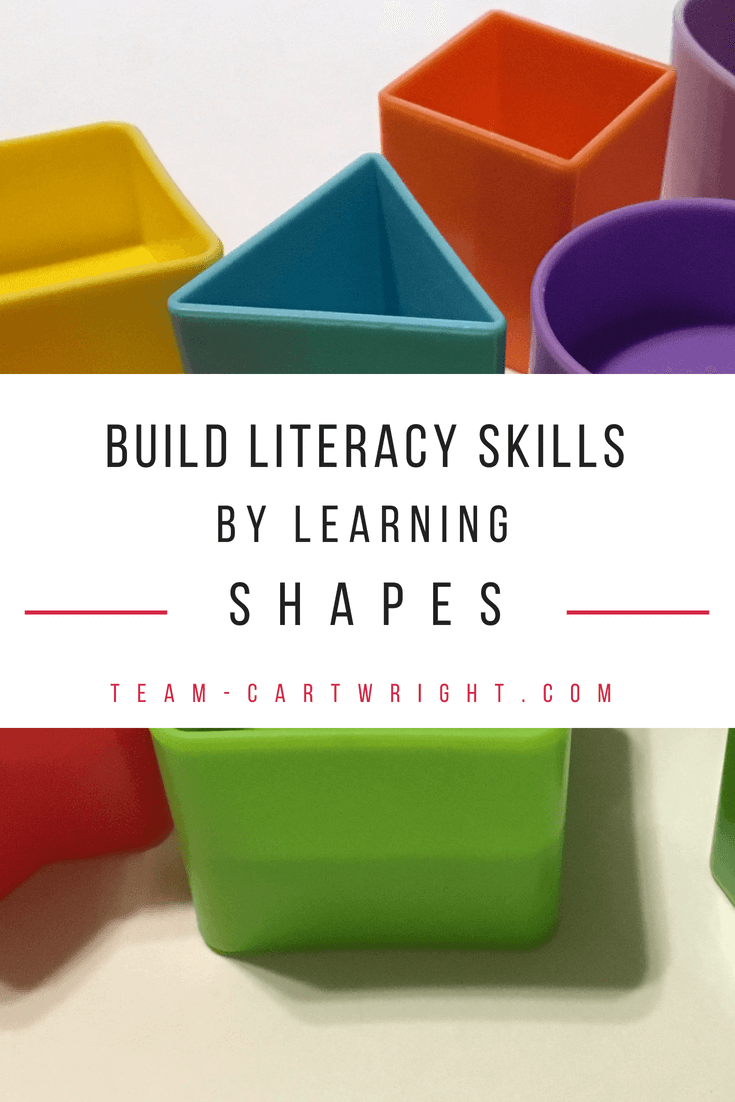
Ways to Learn and Practice Shapes
There are lots of ways to practice shapes. One of my favorite things about this topic is that you can make it more and more challenging as your child learns more and more.
You start with circles, triangles, and squares. Then there are pentagons, hexagons, heptagons, octagons, and more. (This is a great lesson in prefixes too.)
Even with just 4 sides, there are a variety of shapes to work on. Square versus rectangle. Trapezoids, diamonds, parallelograms.
And don’t forget hearts, stars, crescents, and more. There is just so much depth to this simple subject.
Here are some fun and easy ways to work on shapes with your children. Play is key with these.
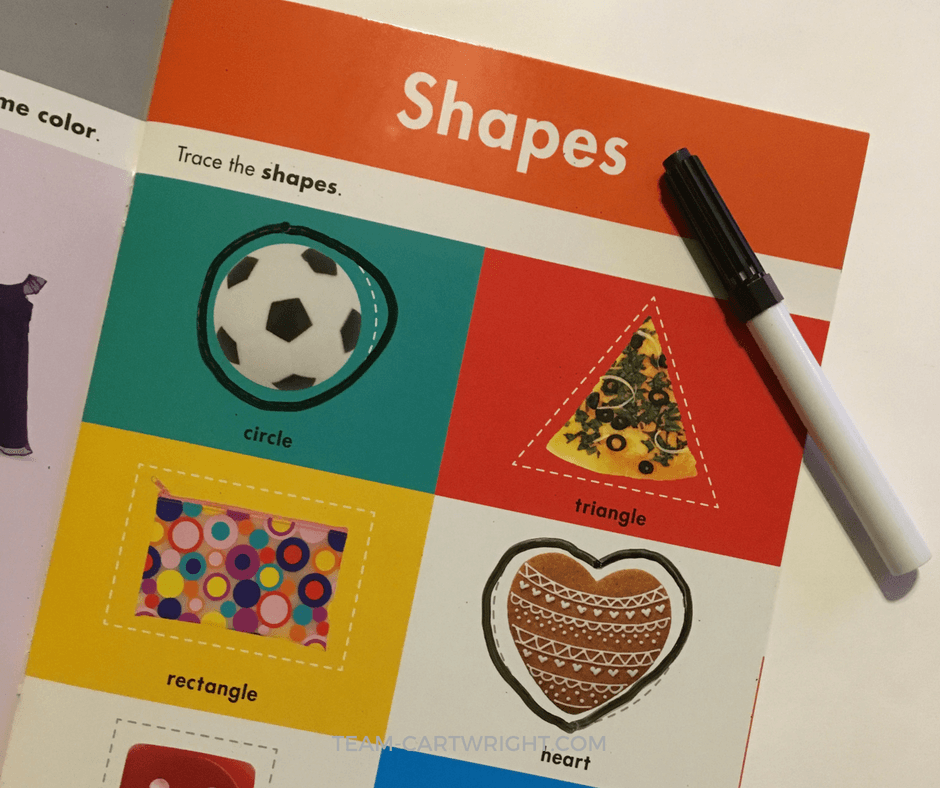
Just Talk
I think we try to make teaching our children too hard sometimes. The simplest way to work on shapes is just to talk about them.
My mother-in-law calls the toddler years the years of two names. Everything you share with your children has two names. For example, you don’t just hand your child a cup you hand them the blue cup. Or we play with the red ball.
Whatever it is, we can naturally add descriptors that are teaching our children. Use shapes the same way. You can read the square book or play with the triangle magnet. You don’t need big explanations, especially with very young toddlers.
Just start using the vocabulary.
Shape Hunts
My kids love going on scavenger hunts. It doesn’t matter what we are looking for, they adore it.
So send your kids on a shape hunt!
I have my children gather up anything that is triangle shaped, or circles. It is easier to focus on one shape at a time with toddlers. Preschoolers can look for more than one shape at a time, adding in sorting practice along with the shape practice.
You don’t need anything special for this. Regular household items and kid toys come in all shapes. But if you want to make it more specific, try cutting shapes out of construction paper.
Low cost and easy cleanup.
Shape Toys
Shape sorters are a staple for a reason. You can find them in every price range. (In fact, Ali and Sammy’s favorite shape sorter came from Walgreens for about $5.)
These sorters practice shape recognition, problem-solving skills, and spatial relations, all in one little toy.
You can even make your own. Grab some blocks or other key shapes and trace them onto a shoebox or other box. Then cut the shapes out and let your children sort!
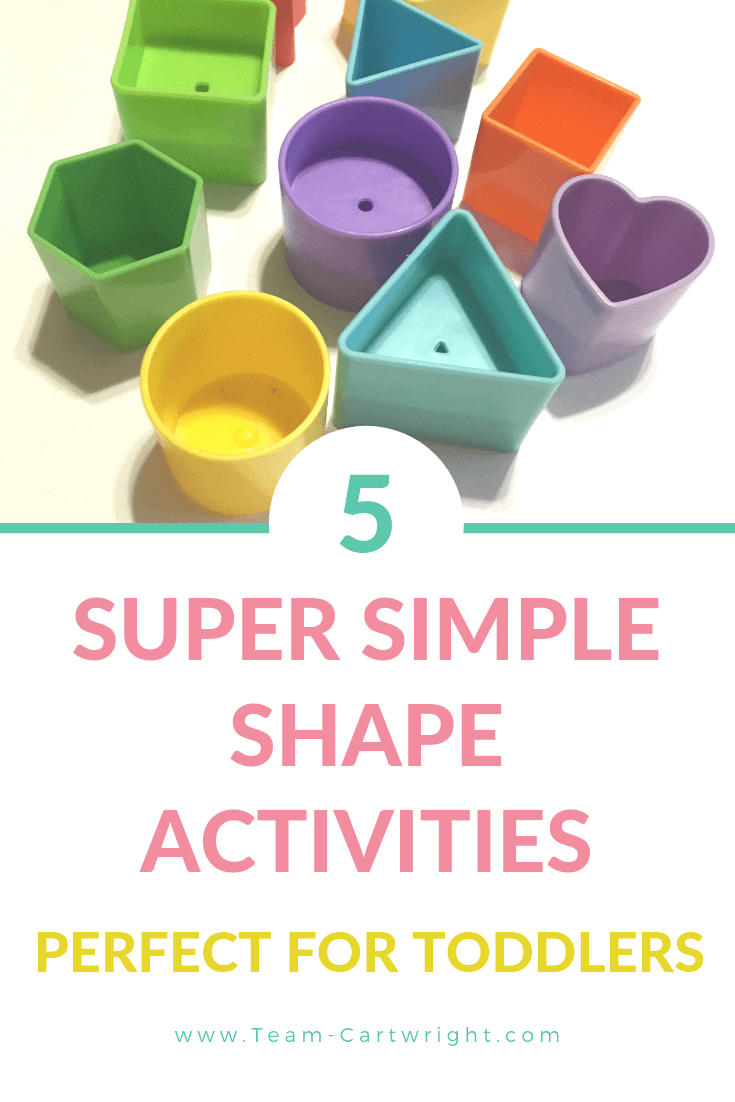
Coloring and Tracing
Coloring books and shape workbooks are a wonderful way to work on shapes. Plus you get work on sitting still and focus skills.
Coloring is a childhood staple that is full of benefits. (Learn all about the benefits of coloring here!)
While your child is coloring, talk about the shapes on the page just as you would talk about the colors they are using. Tracing books provide additional writing practice that will come in handy when they are older.
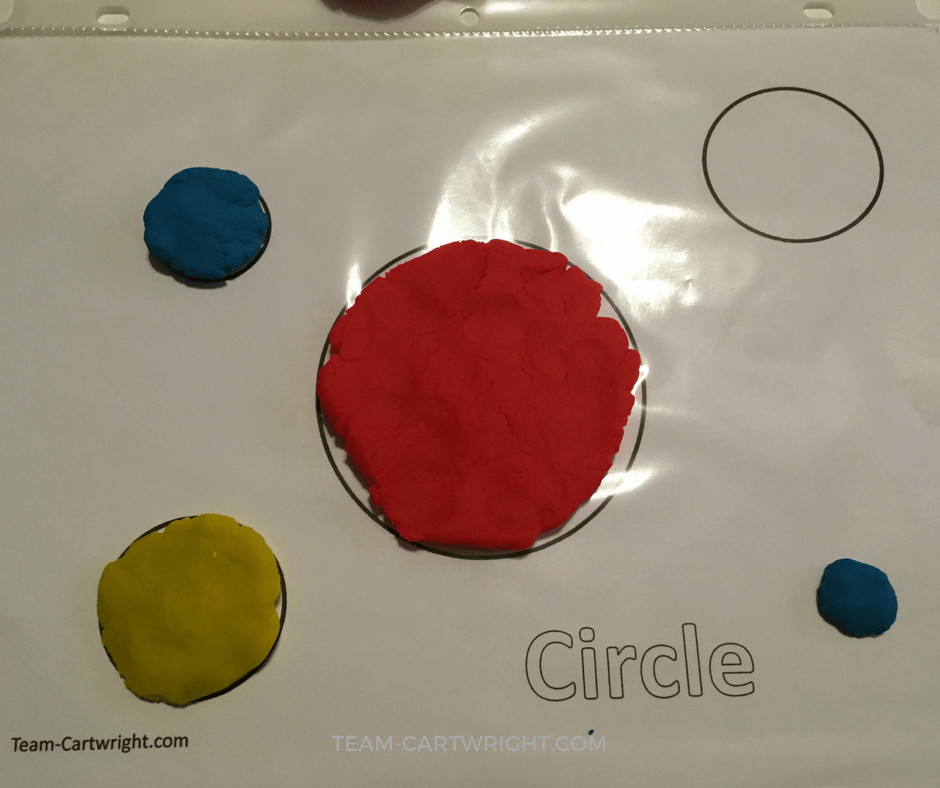
Play-Doh Shapes
This is one of my favorite ways to work shapes. Sensory activities are stepping-stones for STEM skills in life, plus they help children really engage in what they are learning.
I created some shape printables for my children. You can laminate them and have your child fill the shapes in with Play-Doh. (Or slime, if you have a slime loving child.)
I don’t have a laminator, as much as I want one. So instead of that I purchased a few clear plastic sleeves used for binders and put the printables in those.
Easy to put together and easy to clean up. Head to the bottom of this post to learn how to get these for free to use with your children!
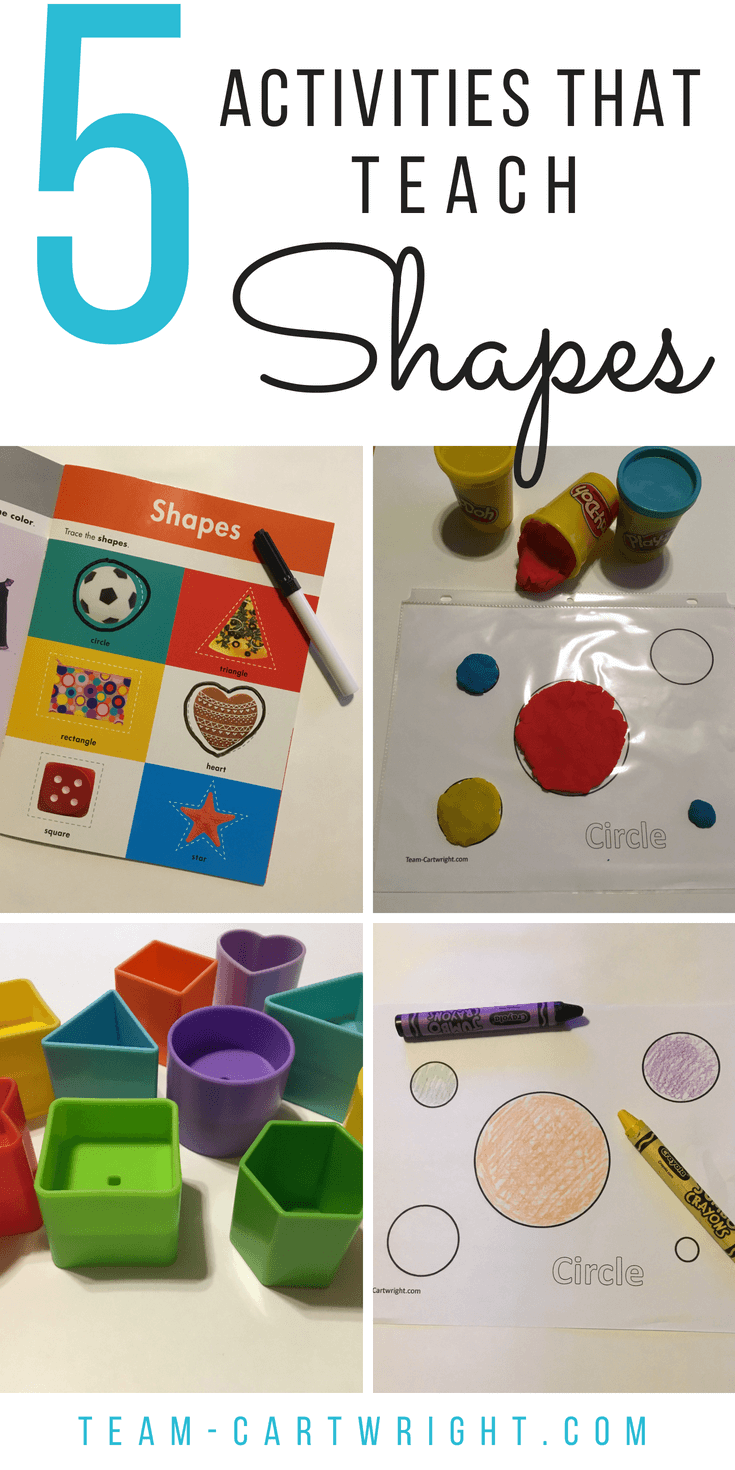
Shape Sticks
A great shape activity you can use as a busy bag activity is shape sticks!
Learn how to make them all here: Shape sticks for Preschool and Toddlers
The short version is to group sticks to make shapes and write the number of sticks needed on each group. So write 3 on three sticks for a triangle, etc. This is a great way to build independent play skills while practicing shapes!
Shapes Everywhere
Shapes are another one of those seemingly simple topics that have big implications for children. And adults.
Think of all the symbols and signs we can recognize just by the shape, even without words. Octagons are stop signs. An upside down triangle is a warning. Hearts mean love and stars are usually a good thing.
Shapes are such an important first step towards literacy and math skills. Things like shapes seem so simple and basic, yet they are teaching our children more than we can imagine.
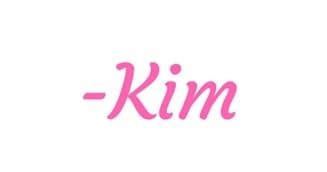
You can get these coloring pages and Play-Doh mats for your kids! These are available for download in my free printables section. You can gain access to all the free resources by signing up for the Team Cartwright mailing list. Once you sign up you will get an email with the printables password. This library contains all kinds of learning aids. The color by number pages, train learning activities, and my Lego coding worksheets. It also unlocks my twin tracking worksheets! Signing up also adds you to my email list, which you can, of course, unsubscribe from at any time.
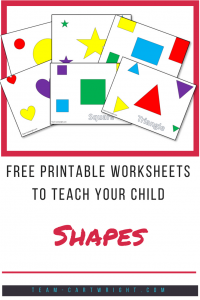
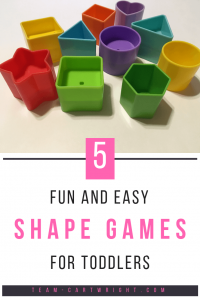
Bonus Shape Practice Printables
Hands-on activities are amazing for learning about shapes. But worksheets can be helpful as well. These three free worksheets are great for shape practice.
Your child can practice tracing the shapes and then draw them in with the dots. Finally, practice scissor skills while you cut and paste the pictures with the proper shape. Easy and fun! (And don’t forget to let them color their shapes too.)
Find your next fun activity! Where would you like to start?
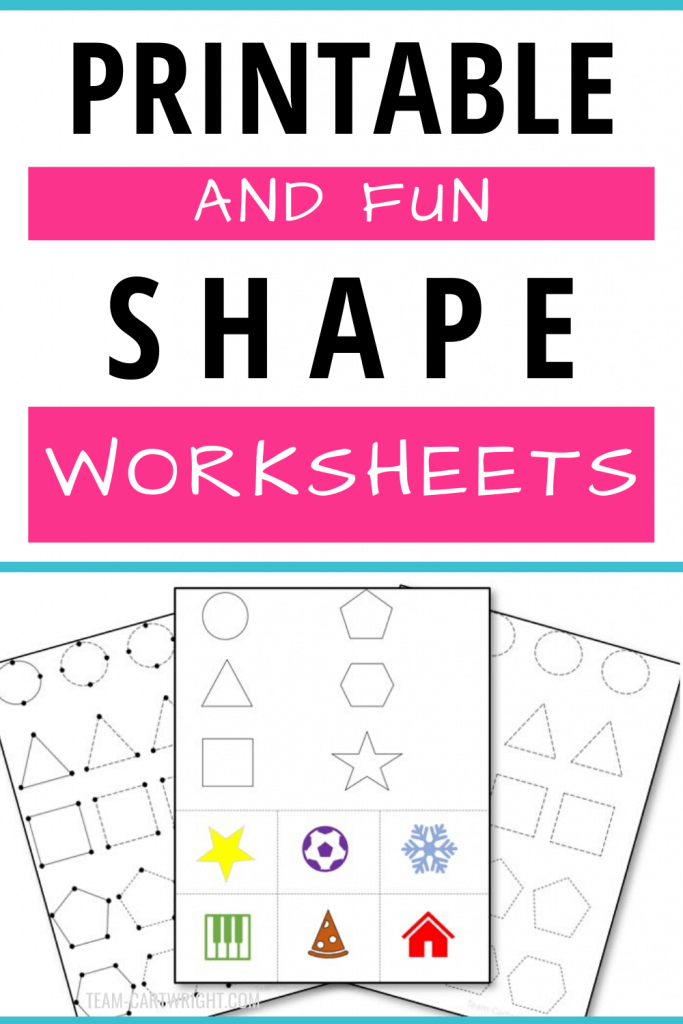

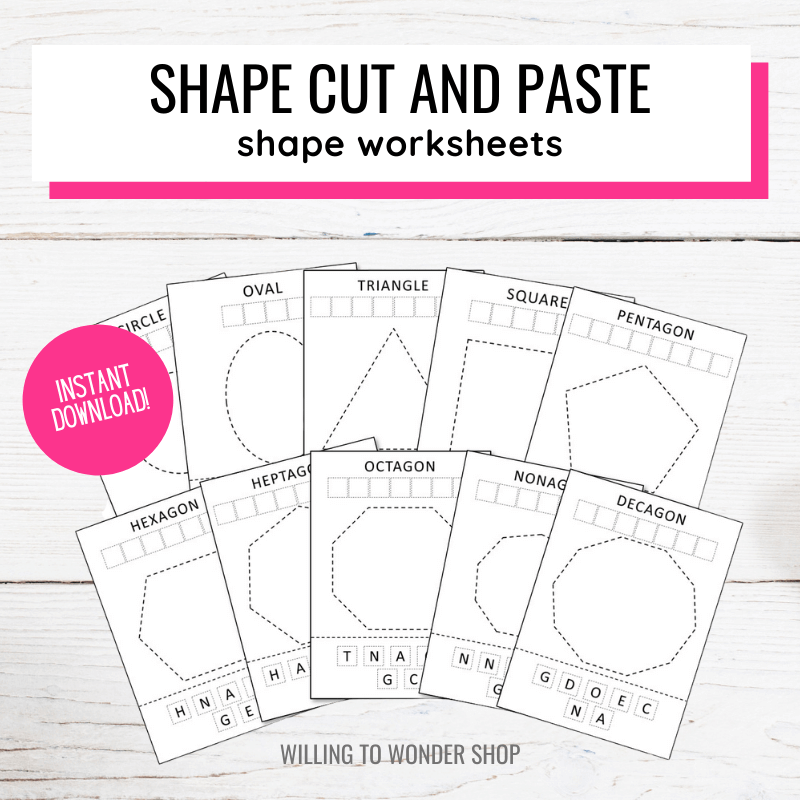
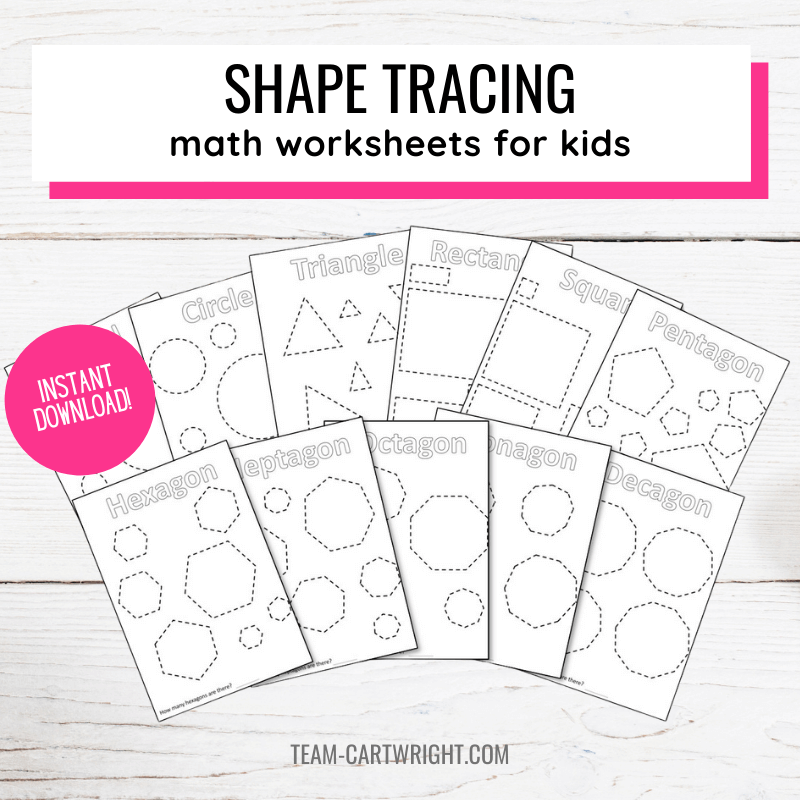
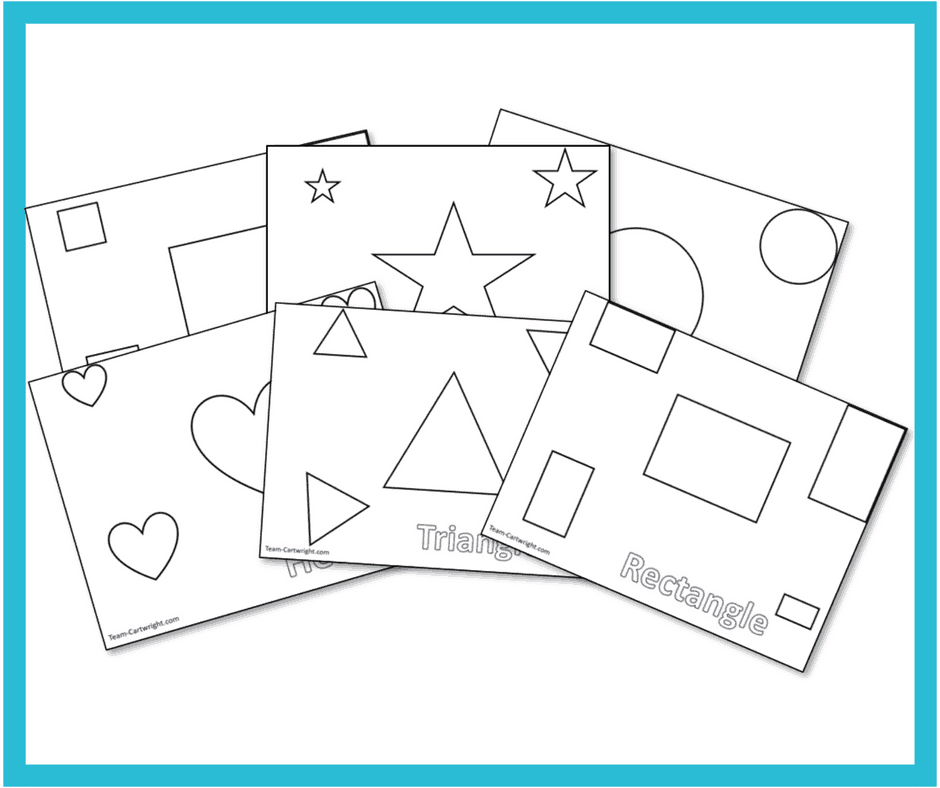
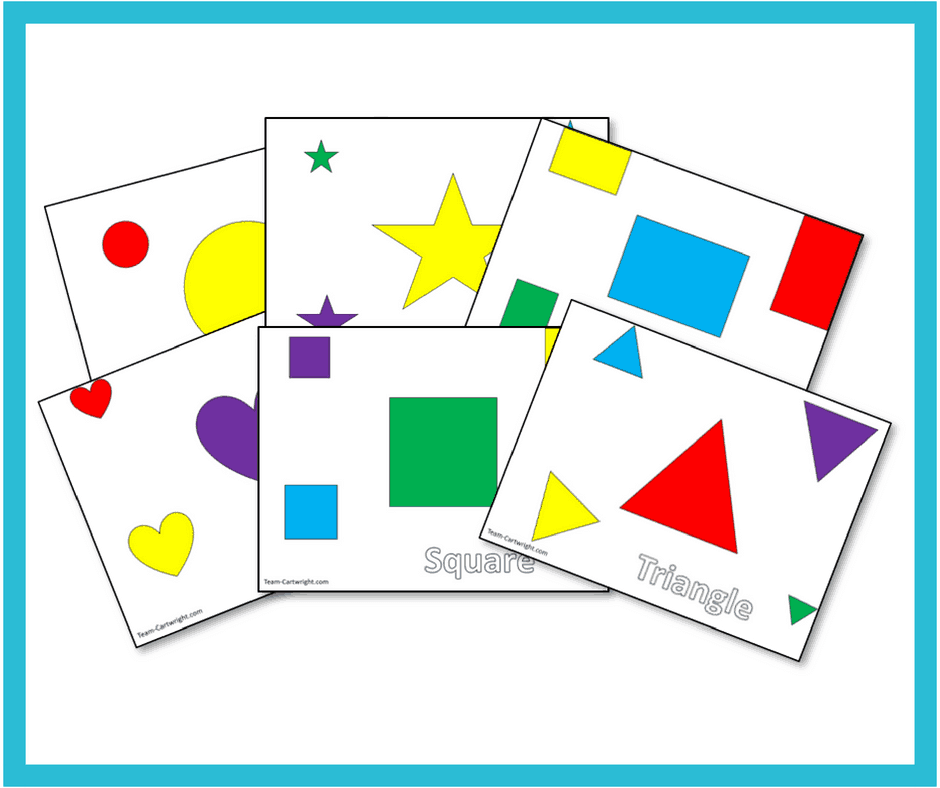
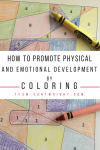

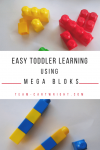
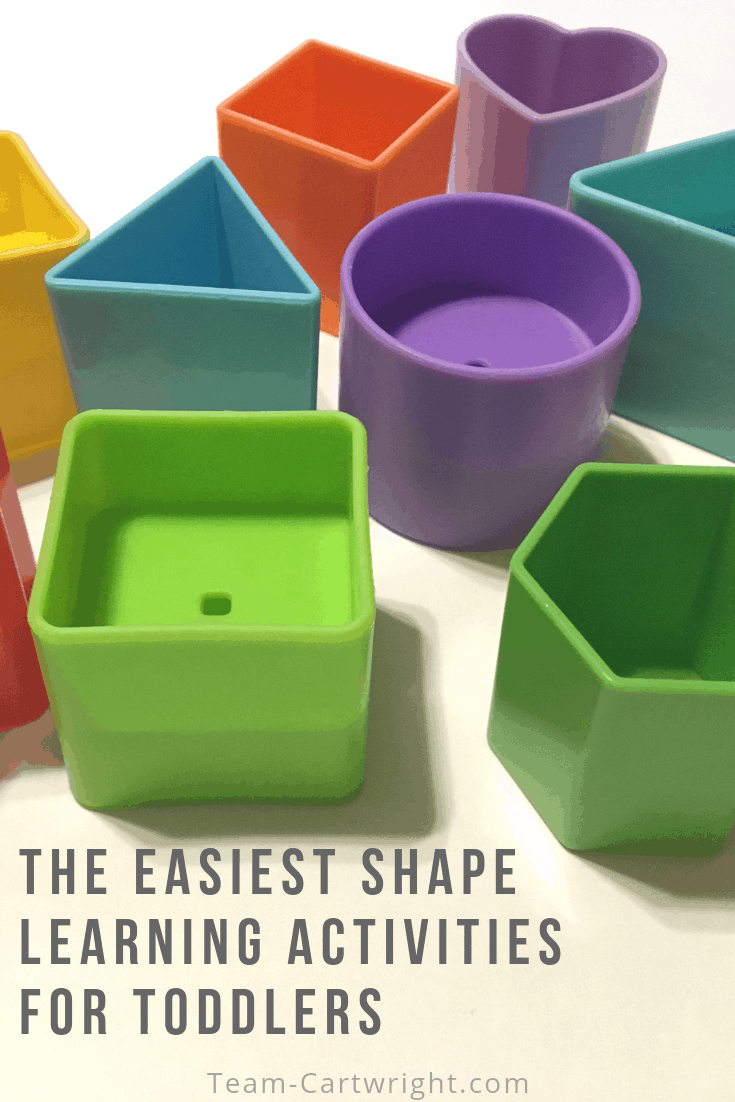
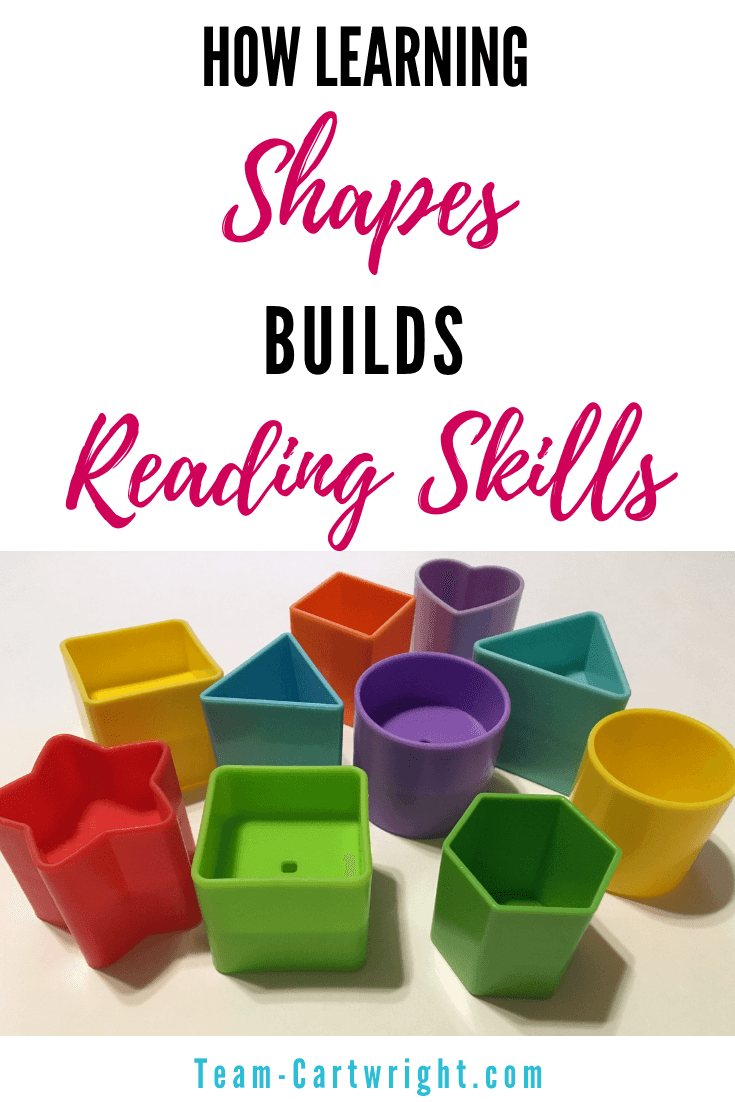
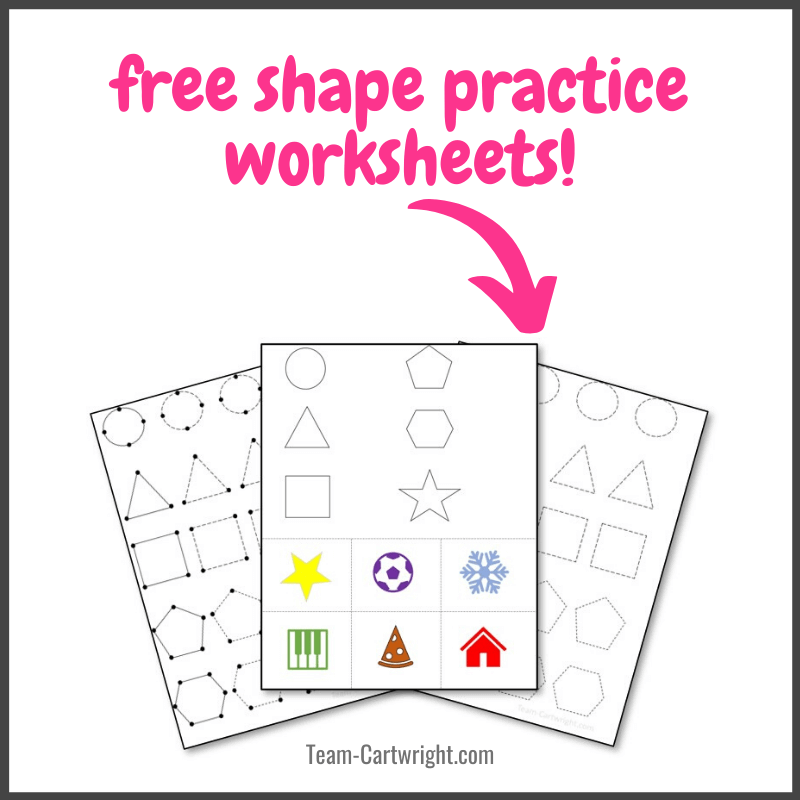
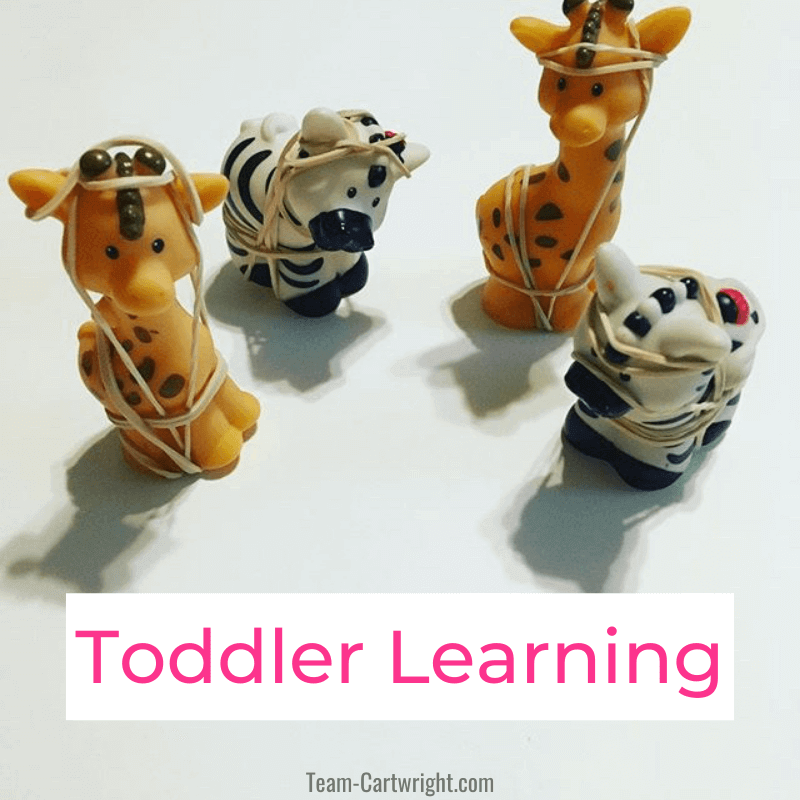
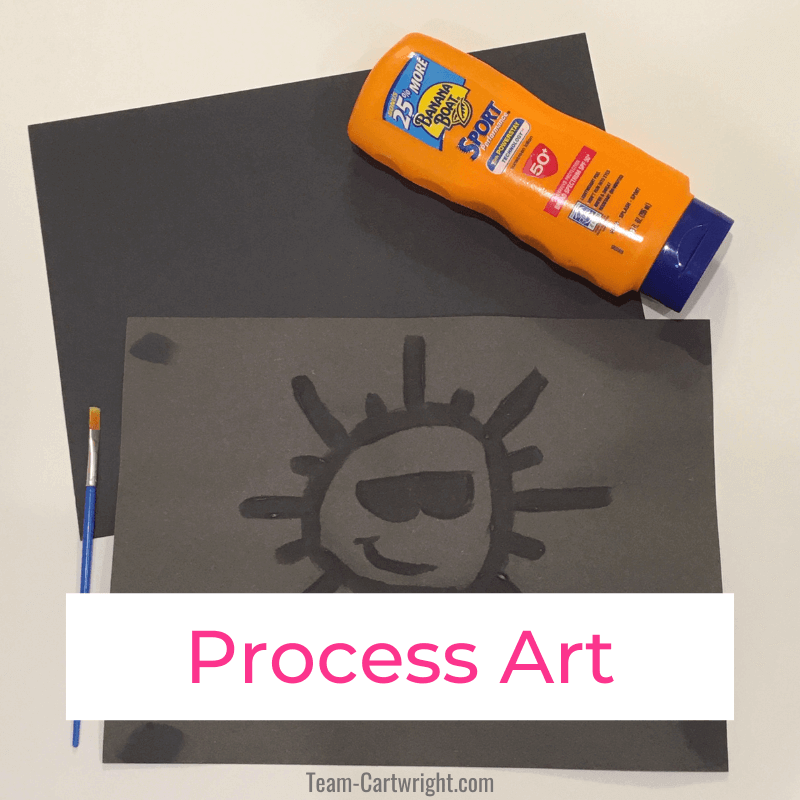
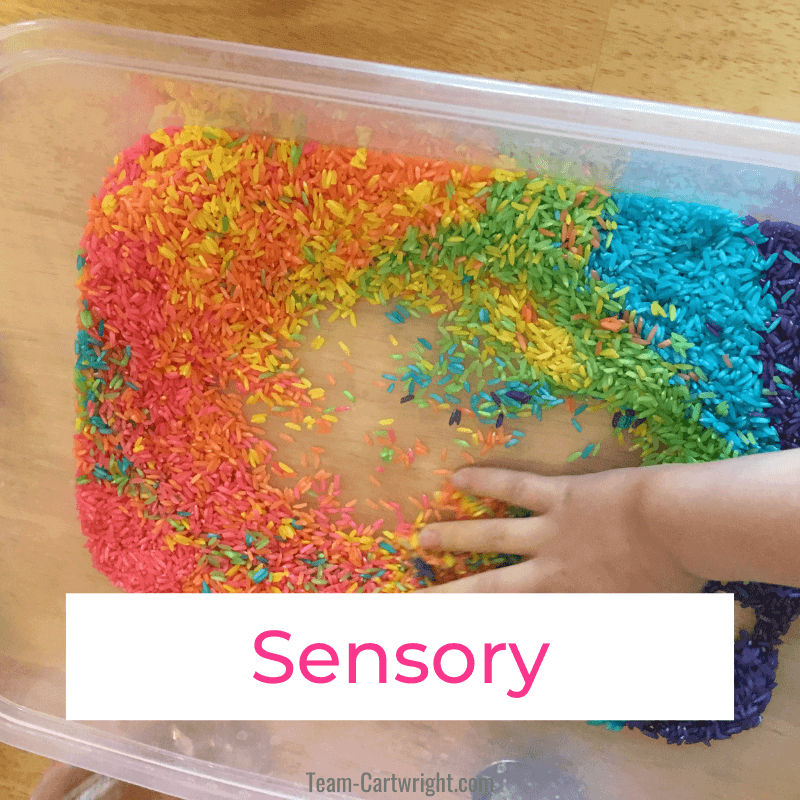


J. Ivy Boyter
Sunday 19th of August 2018
These are such great ideas for learning shapes! I particularly love the idea of the Playdoh Shapes, thank you
Inez
Saturday 18th of August 2018
I loved reading the benefits of teaching shapes, it's really not something we think about a whole lot. We just know they need to know their shapes. :-)
Krystal Miller
Monday 13th of August 2018
My daughter is 3 and knows her shapes. We had shape sorters around the house and just made a point to mention them along with colors, letters, etc.
Rebecca Hicks
Monday 13th of August 2018
I totally agree with everything you said! And I love the different activities you included on teaching shapes. They sound like fun, but also great ways to teach children all about different shapes.
Melissa
Monday 13th of August 2018
I love these ideas! I will have to try some of them with my toddler. We do a lot of work with shapes and are now using them to learn patterns which has been fun.